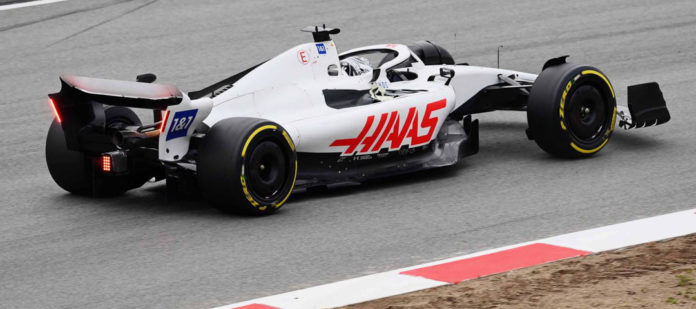Like many other sports, Formula One is grappling with its own internal politics in light of Russia’s military incursion into Ukraine. In a recent issue, The Cascade examined the history of Haas, the only American team in F1, and questioned what the future impact of Russian oligarch Dmitry Mazepin’s heavy investment in the team might be. Moreover, the regular F1 calendar has drivers racing in Russia, which now presents its own issues. The ultimate outcome remains to be seen, but the first effects of Russia’s potential censure from motorsports are beginning to come to light.
One of the first F1 updates to come after Russia’s invasion was the cancellation of the Russian Grand Prix, which was scheduled to be held in Sochi on Sept. 25. Several drivers, including Sebastian Vettel and Max Verstappen, had called for the race to be canceled (with Vettel going so far as to say he would not participate in the race regardless of whether officials canceled it or not). However, the wording of the officials’ statement leaves them a convenient out: by saying it is “impossible to hold the Russian GP in the current circumstances,” the door remains open for the race to be reinstated if circumstances change. For now, however, this cancellation is the first consequence for Russian motorsports.
A trickier situation is afoot in the Haas stables. As of writing, Russian driver Nikita Mazepin is still permitted to drive in the upcoming season, but he must do so under a neutral flag. The Automobile Federation of Ukraine has requested that the FIA, the governing body of F1, ban all Russian and Belarusian drivers from competing outside of their own countries, which would only affect Mazepin at this time. The FIA has stopped short of banning those drivers outright, but Mazepin’s future is still in jeopardy. Haas has already begun to consider dropping Uralkali (a subsidiary of Uralchem, the Russian chemical manufacturer Mazepin’s father chairs) from their prominent sponsorship position with the team. Team principal, Guenther Steiner, has stated that the team will be prepared to lose the money from Uralkali’s investment if they do decide to sever ties, and while they haven’t yet made an official decision, Haas has erased all mention of Uralkali from their website and removed both the Uralkali branding and the Russian flag colours from their car during testing in Barcelona on Feb. 25. If Uralkali is removed, it’s possible that Mazepin might be dropped from the team anyway, given that there seems to be little reason for him to have a seat beyond his father’s investment.
Clearly, the current political situation is one the FIA never planned for. While fans rightfully expect swift and decisive action to be taken to remove Russia from the global motorsports stage, bureaucracy takes time. However, every day that passes without a firm rejection of Russian participation in F1 is another day in which the FIA supports and allows Russia’s presence.
Image: HAAS F1
In between horror movie marathons and arthritis-inducing embroidery sessions, Maecyn likes to correct the grammar of unsuspecting journalists. She’s currently pursuing a BA in History and a career in library science, which makes her the official ambassador for cardigan-wearers everywhere.


